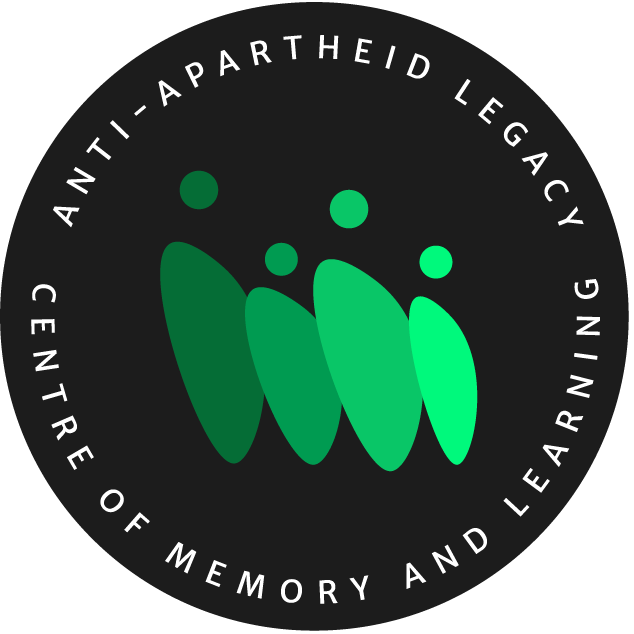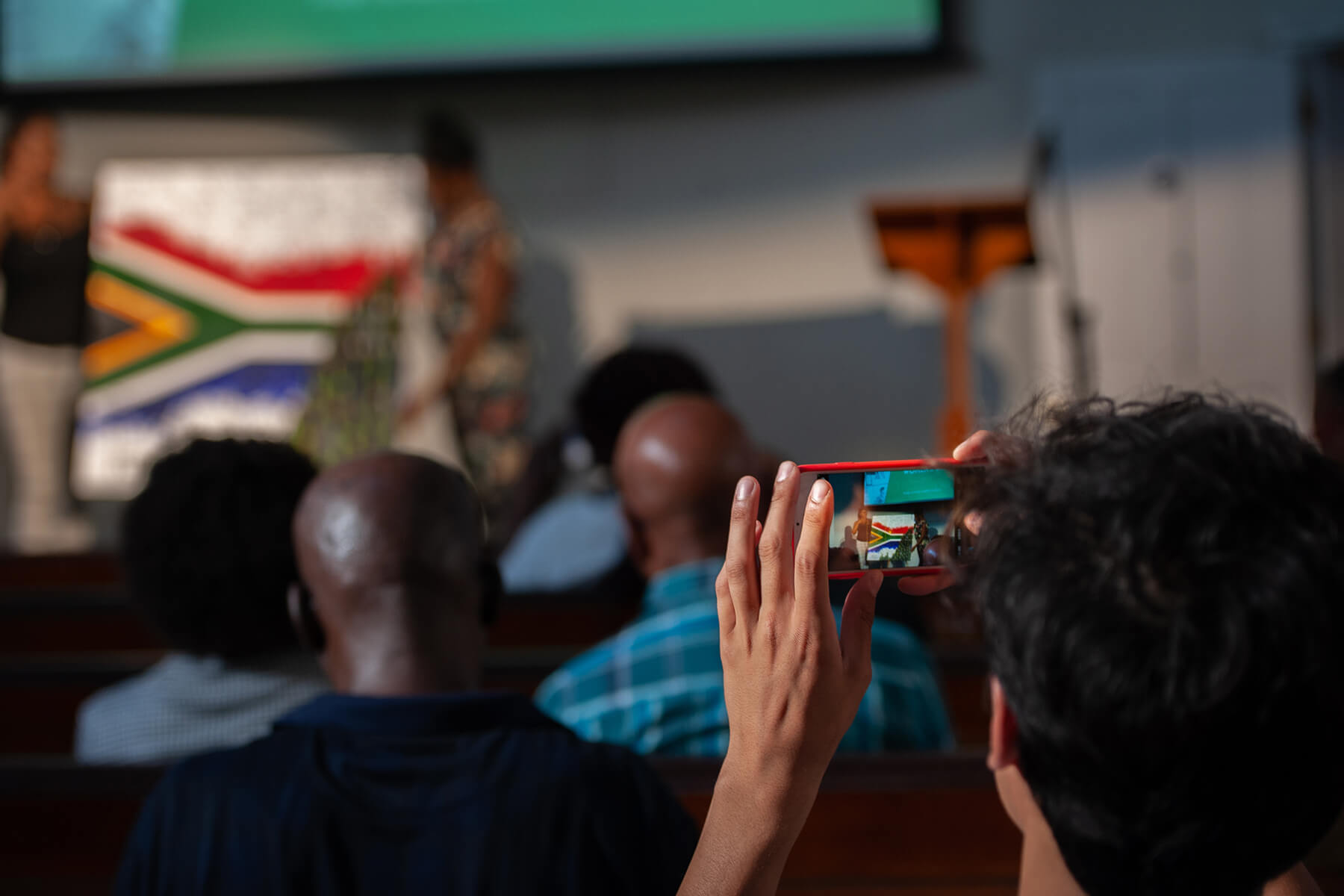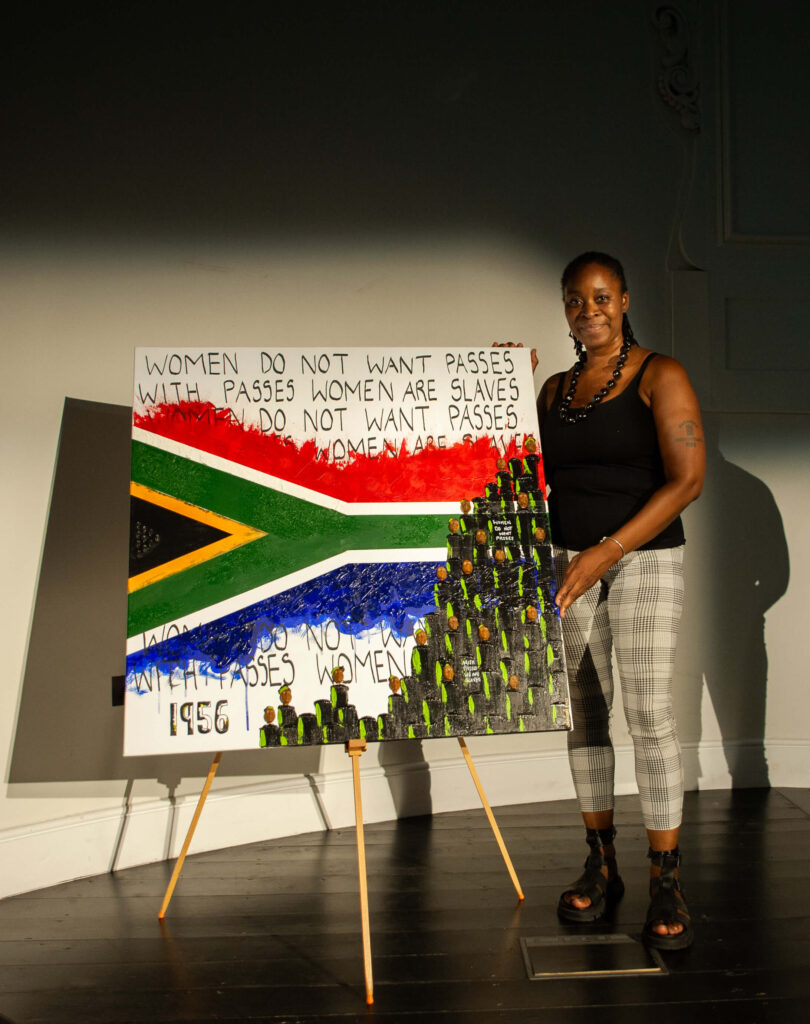On Tuesday, August 9 2022, South African Women’s Day was celebrated with a vibrant event hosted by the Anti-Apartheid Centre of Memory and Learning (CML) at the Newington Green Meeting House in London, a fitting location given its connection to Mary Wollstonecraft, author of “The Vindication of the Rights of Women”.
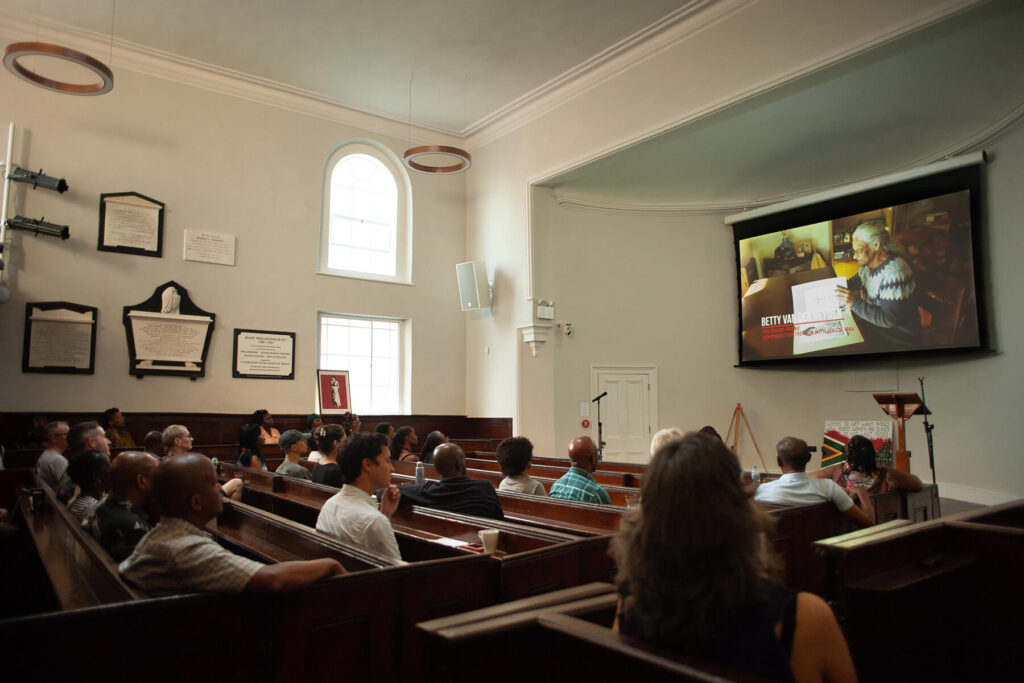
The evening was characterised by lively conversation provoked by a film screening of Enver Samuel’s “Murder in Paris”, an investigative documentary that traces the motives for the assassination of Anti-Apartheid activist Dulcie September (shown above), as well as a the unveiling of “South African Flag” by artist Nefateri Asentewa.
Nefateri’s commission is part of our Arts Council England and Barry Amiel and Norman Melburn Trust funded Anti-Apartheid, Now project. Nefateri is pictured above sharing her work.
To symbolize the ongoing inequalities between men and women within global societies, artist Nefateri’s commissioned piece features a cracked and textured South African flag. A series of 3D faces are included in the mixed media piece, highlighting the struggle of women now and in the past.
The significance of the 1956 Women’s March on Pretoria, South Africa dominated the evening’s discussions.
Nefateri explained how this act of defiance had an impact on her work, “I have, in many ways, been inspired by the 1956 Women’s March and in developing this artwork, I wanted to highlight this inspiration. The piece has 20 faces of black women, and this represents the 20,000 women who marched on Pretoria on that day”.
“The black, green and gold represents the ANC’s national colours. What I also wanted to draw from in terms of the significance of the march, were the banners that were being held up and the messages that were on them.” Some of the messages written on the protestors’ posters speak to the struggle of women then and now.
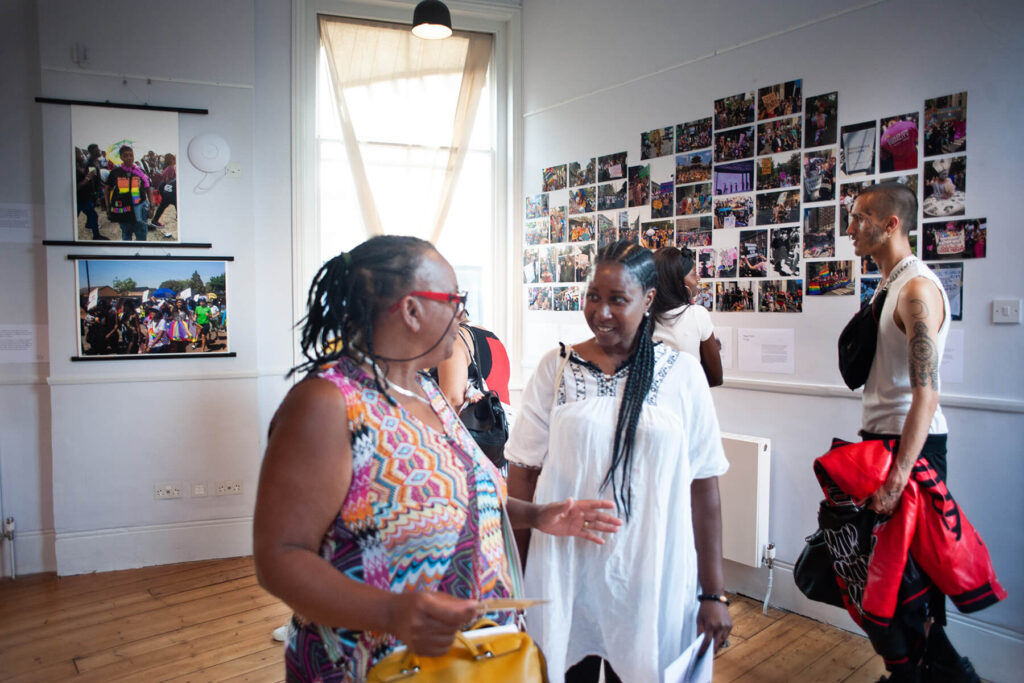
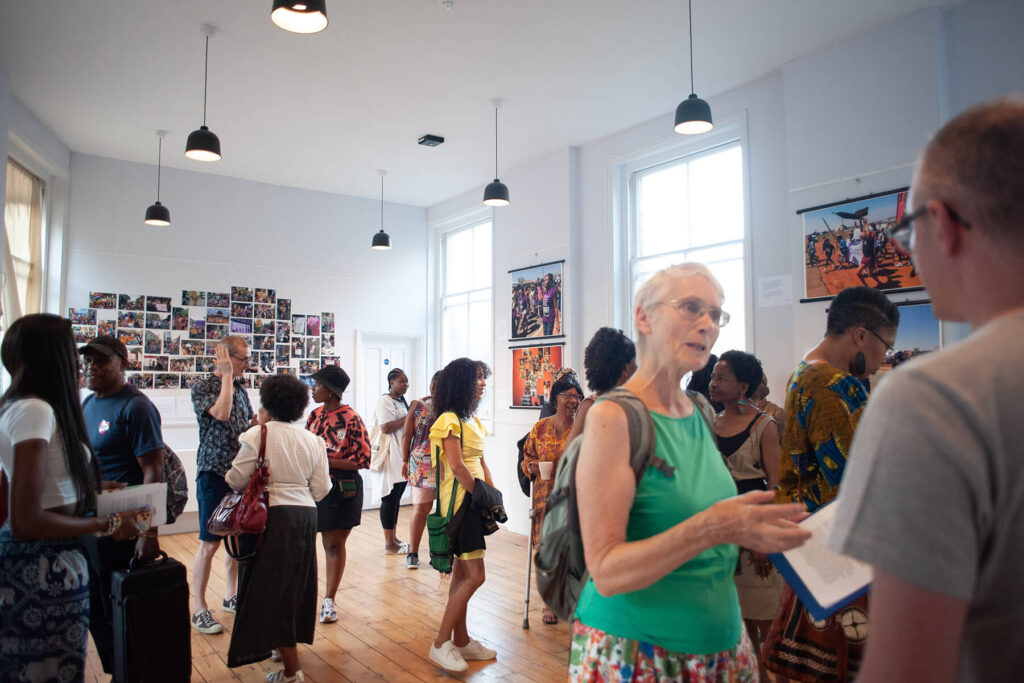
Guests were able to view the exhibition “Pride Belongs to the People: Images of Soweto Pride”, curated by Daniel Conway and Alex Green. The exhibition is part of The Culthouse’s Pop Up Shop supported by The Leverhulme Trust and the School of Social Sciences at the University of Westminster and provided a stimulating backdrop for the evening’s conversations that centred around the power of female-led resistance and resilience to oppression within society.
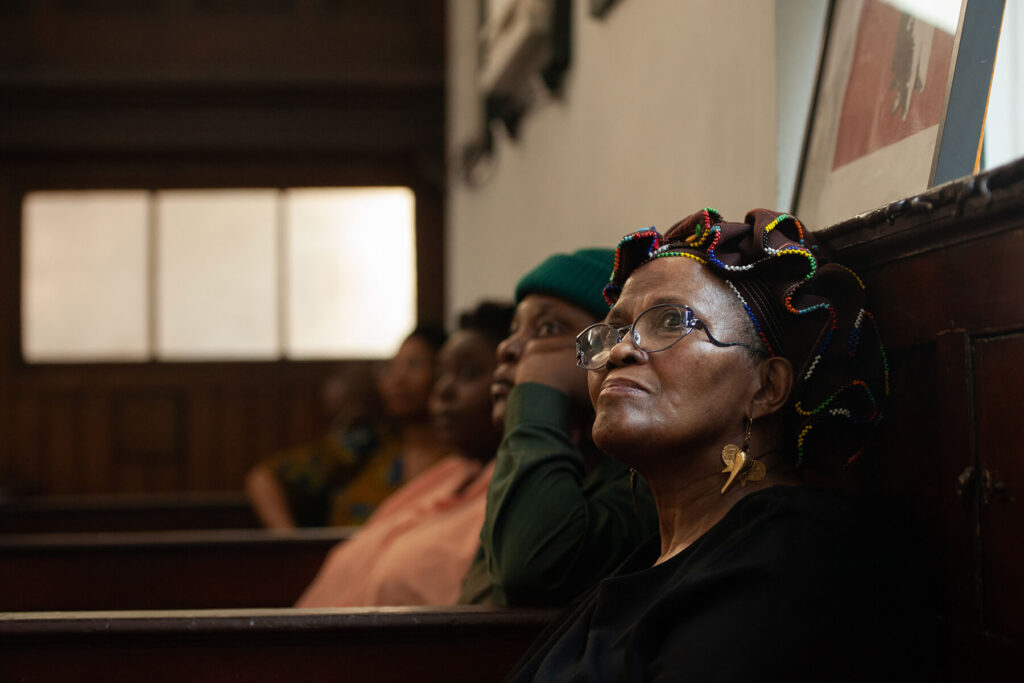
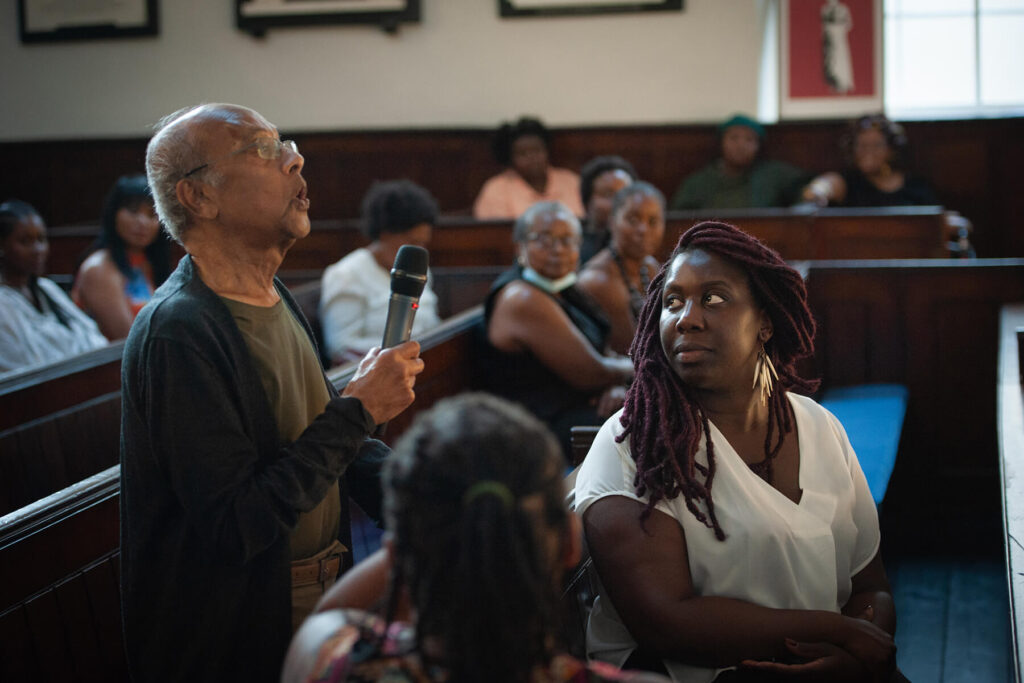
Attendees included members of the local Islington and Hackney communities, the Southern African diaspora in the UK, former as well as current activists, including anti-apartheid activists Ma Lindiwe Poswa (above left, pictured on right seated in Mary Wollstonecraft’s pew) and Paul Joseph, one of the 156 accused in the 1956 Treason Trial alongside Nelson Mandela, Lilian Ngoyi, Ruth First, Joe Slovo and others (above right, pictured speaking). Also in attendance were Mr. Jabu Sibeko, Chairperson of the ANC in the UK, Mr. Jacob Mothopeng – representing the South African High Commission, and Jan O’Malley, a long-time peace activist and member of the Cuban Solidarity Movement. Her late husband, John O’Malley, was a London Recruit. The attendance of friends and colleagues of Dulcie added poignancy to the evening.
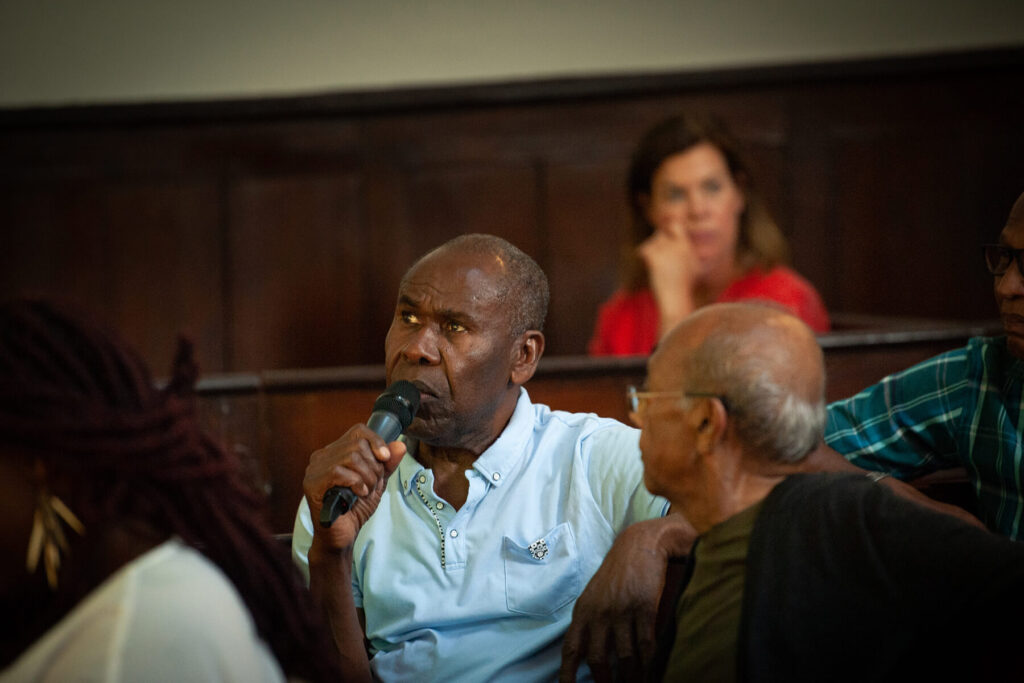
In highlighting the need to eradicate both race and gender-based injustice, Professor Gus John, a former UK campaigner in the anti-apartheid struggle pictured above, said “The issues of racial and gender oppression need us to challenge them directly. We must enable and train ourselves in new ways of being in the world and new ways of interacting with one another so that we can together build a better future and one that does not allow the past to effectively constrain the way of our children, their children and their grandchildren.”
Other guests contributed their reflections on the film and the legacy that women, both in fighting apartheid and in ongoing socio-political struggles inspire and empower today.
Written by Thapelo Moloantoa, Digital & Communications Lead, August 2022

